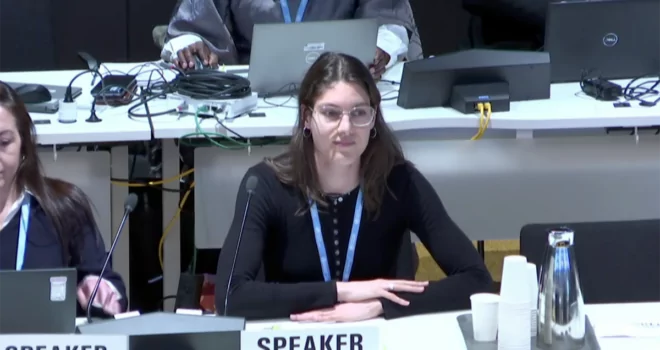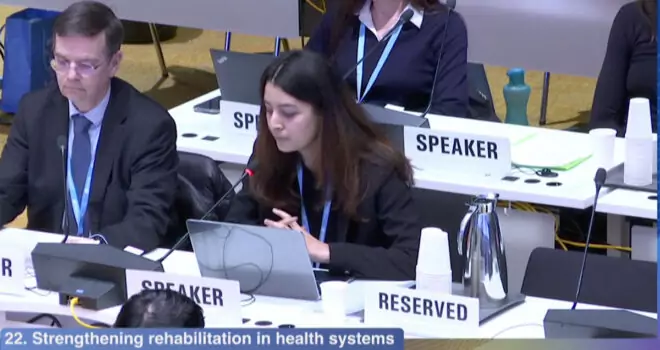The World Heart Federation (WHF) drives heart health globally, committed to improving everyone’s access to care. WHF has spearheaded the creation of the World Heart Observatory, a one-of-a-kind global resource for cardiovascular data with the support of the Novartis Foundation, the Global Burden of Disease, and the Institute for Health Metrics and Evaluation (IHME). In our interview on which this article is based, WHF’s President, Professor Fausto Pinto, stressed the importance of such shared data resources in saving lives from the world’s biggest killer.
“We are living in a complex period and there is no better time to curate quality data that help us build scenarios and plan for the future,” said Professor Fausto Pinto, President of the World Heart Federation, describing the World Heart Observatory as “a milestone in healthcare,” launched in early 2022. Indeed, many will agree on the crucial need to have better, interconnected data to help us face something as unexpected as a pandemic. Such a tool is especially important, not only because COVID-19 affected many patients’ hearts so adversely but also because even before the pandemic, cardiovascular disease (CVD) has been claiming more than 18 million lives in a single year.
The World Heart Observatory will serve as a global online platform that houses data initiatives from different stakeholders around the globe, enhances capacity for data collection, and mobilises partnerships. The Observatory opens a window to resources including publications, scorecards, aggregated data sources, maps, graphs and other visuals. It is a gathering place for data and knowledge exchange that can be applied by practitioners, policymakers and innovators.
Beyond knowledge
Many organisations already collect, sift and sort data, and a high-quality data hub is necessary for ensuring accuracy and quality so that the knowledge can inform and improve healthcare. Patient registries are one example of data collection, and many of WHF’s more than 200 Members are already compiling data in their own regions and countries that will also be available on the new global data platform. What’s different, then? The World Heart Observatory aims to fill gaps in the data landscape and drive a holistic, equitable approach to world heart care. “We felt we needed a platform that goes beyond knowledge about disease prevalence to one reflecting the challenges and tools for promotion of cardiovascular health and management of disease. We must also capture data on risk factors, social determinants of health and outcomes, care infrastructure and policy responses to populations’ health needs,” said Professor Pinto.
A system that captures the reality of many other disciplines such as the work of nutritionists, psychologists, computer scientists, and data analysts is needed more than ever. “This interdisciplinary data capture and analysis adds another dimension to our understanding of heart disease, where many blockages exist regarding diagnosis, access to care, and the range of treatments. The World Heart Observatory will serve as an open-access platform for contributors and others interested in mutual learning and retrieving evolving tools and information that they can test and apply in respective parts of the world.”
An inclusive data community fighting CVD
The COVID-19 pandemic left no one in doubt as to the power of digital healthcare. Devices run the gamut from simple smart watches to wearable heart monitors and more. Alongside the growth in digital healthcare is the wide prevalence of cardiovascular disease (CVD), much of it occurring in low to middle-income countries. An open-access, flexible platform can promote “an inclusive data community fighting CVD, and help change the course of cardiovascular health,” said Professor Pinto.
Science, research, advocacy, and training are at the heart of WHF’s mission to secure cardiovascular health for everyone. “Data mining and resulting tools can help put pieces of puzzles together, avoiding re-invention and enabling innovation,” said Professor Pinto, adding, “we are proud of the World Heart Observatory, mindful that as its name implies, it entails careful monitoring and curating of information over time.” The World Heart Observatory will lend a view of gaps in care and opportunities for solutions to address the medical but also social and policy aspects affecting health outcomes so crucial to well-functioning societies.
Professor Fausto Pinto is the Dean of the Faculty of Medicine of the University of Lisbon (Lisbon, Portugal), and Full Professor of Cardiology, Head of the Cardiology Department and of the Heart and Vascular Department of Santa Maria University Hospital, CHULN E.P.E. This article was provided in his capacity as President of the World Heart Federation ahead of the launch of the World Heart Observatory, February 2022. In addition to his international spokesperson roles and honorary memberships, Professor Pinto is currently Consulting Editor and Member of the Advisory and Editorial of Board of several international peer-reviewed journals, and Expert Reviewer for the European Commission. His main areas of interest are global health, ischemic heart disease, anticoagulation, and cardiovascular imaging, and he has pioneered the use of intravascular ultrasound in the study of graft atherosclerosis.


